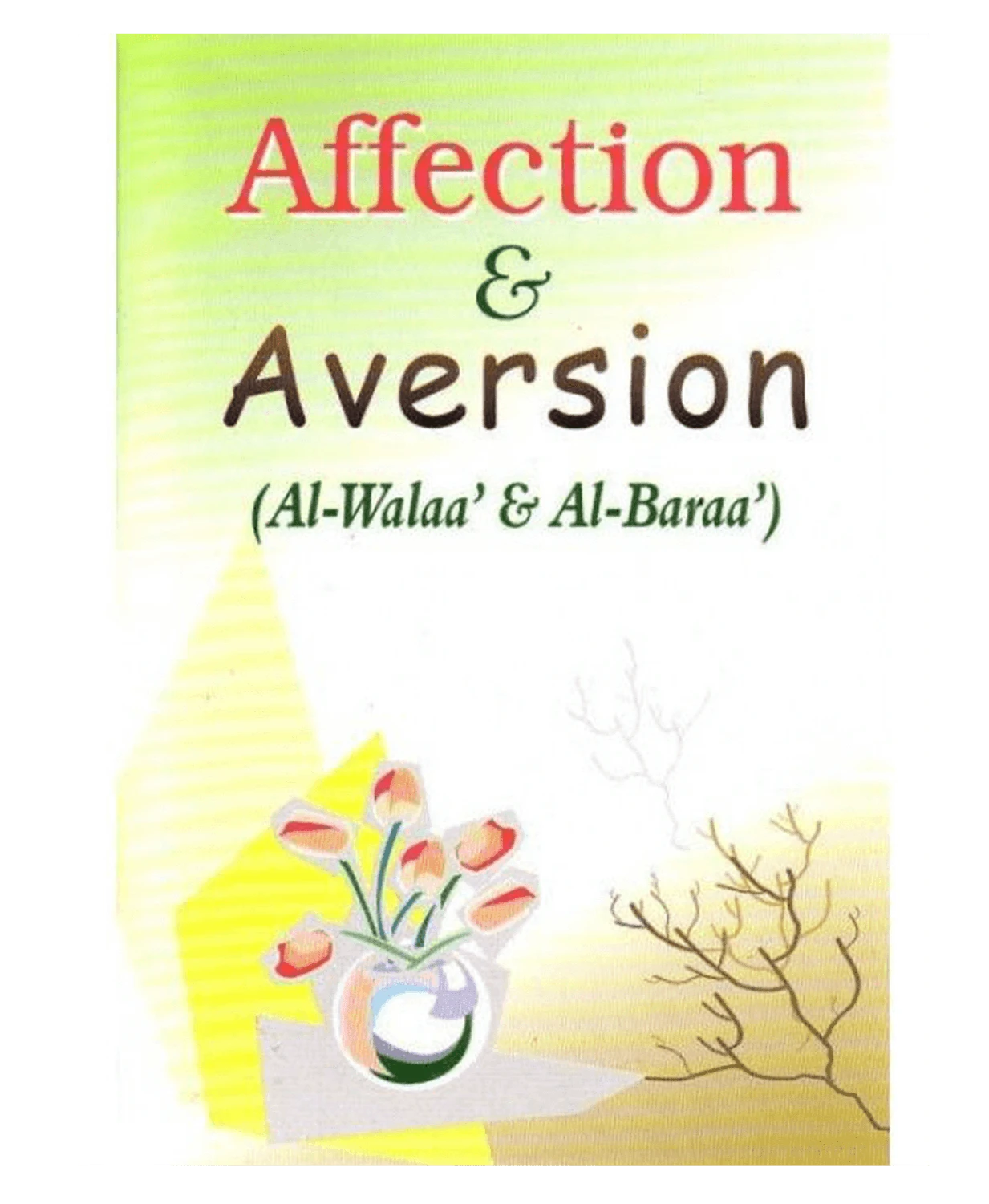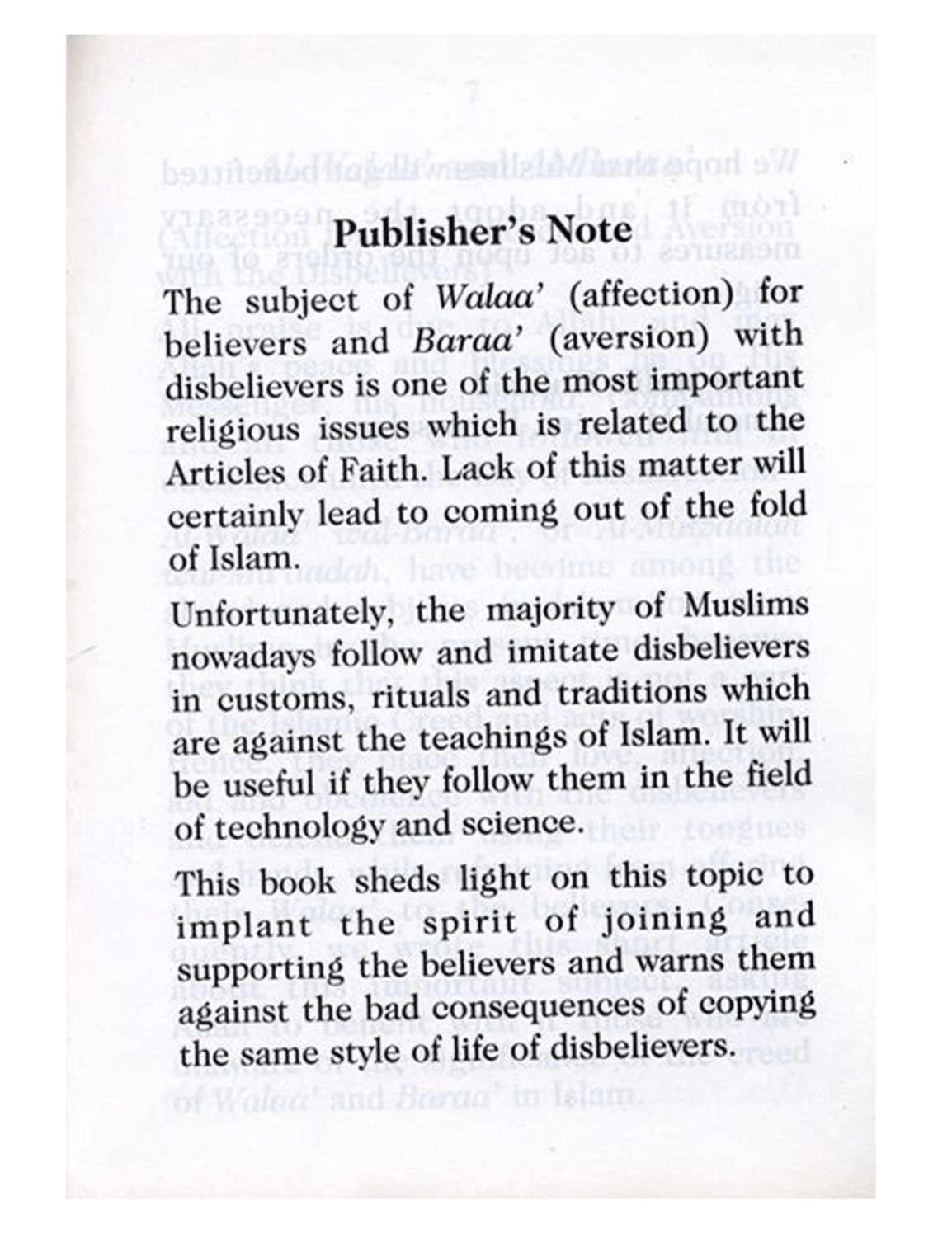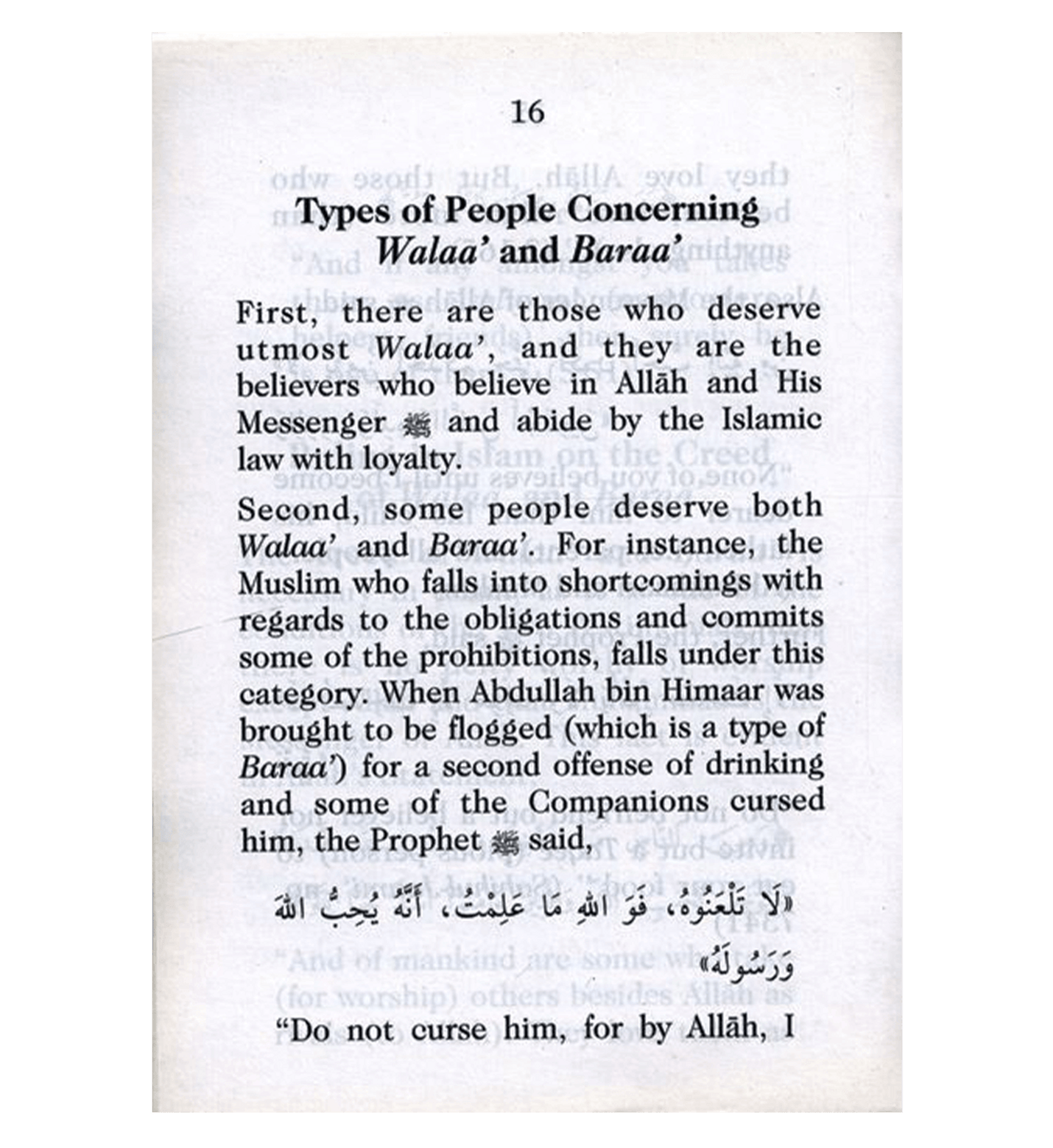Affection & Aversion 'Al-Walaa' And Wal-Baraa' | Abdul Malik Mujahid
Affection & Aversion 'Al-Walaa' And Wal-Baraa' | Abdul Malik Mujahid
Publisher:
Darussalam
Language:
English
Binding:
Soft Cover
Pages: 32
Size: 12x17cm
Couldn't load pickup availability



Collapsible content
Description of Book
Affection & Aversion 'Al-Walaa' And Wal-Baraa' | Abdul Malik Mujahid
Affection & Aversion: 'Al-Walaa' and 'Al-Baraa' is a concept explored in the Islamic creed by Abdul Malik Mujahid. It refers to two key principles in Islamic theology and practice: Al-Walaa' (affection, loyalty, or allegiance) and Al-Baraa' (aversion, disavowal, or dissociation). These principles guide the relationship between Muslims and non-Muslims, as well as their conduct in terms of loyalty and disavowal based on faith and values.
-
Al-Walaa' (Affection, Loyalty, Allegiance):
- Al-Walaa' signifies a deep emotional bond, loyalty, and love towards those who uphold the Islamic faith and share common values. This principle encourages Muslims to form close relationships with fellow believers, fostering a sense of unity, solidarity, and mutual support within the Muslim community (Ummah).
- The concept of Walaa' is not limited to just affection; it encompasses a sense of allegiance, helping and supporting fellow Muslims in all aspects of life. It is rooted in the Qur'an and Sunnah, where the Muslims are encouraged to be allies to one another, defending and assisting one another in the face of adversity.
-
Al-Baraa' (Aversion, Disavowal, Dissociation):
- In contrast, Al-Baraa' involves aversion or disavowal, specifically in relation to those who oppose the core teachings of Islam, such as non-believers or those who openly oppose Islam. This does not necessarily mean hatred or animosity but rather a clear distinction between Muslims and those who hold opposing beliefs.
- Baraa' is about dissociating from practices, ideologies, or people that contradict Islamic teachings, maintaining a boundary that preserves the purity of one's faith and identity. It is a concept that seeks to protect the Muslim community from being influenced or corrupted by external ideologies or practices that are contrary to the Qur'an and Sunnah.
-
Balance Between Al-Walaa' and Al-Baraa':
- Abdul Malik Mujahid emphasizes the balance between Al-Walaa' and Al-Baraa'. It is crucial for Muslims to exhibit love and loyalty towards fellow believers and Islam while also maintaining a clear boundary from those who reject or oppose the faith.
- However, this aversion does not imply hatred toward individuals, but rather a rejection of ideologies or actions that are seen as harmful to the integrity of Islam.
-
Practical Application:
- In practice, Al-Walaa' and Al-Baraa' manifest in various forms, such as the types of friendships, alliances, and associations a Muslim forms. For example, a Muslim may prioritize relationships with fellow believers, support them in times of need, and work toward common Islamic goals. On the other hand, Muslims are advised to avoid forming close allegiances with those who openly oppose or mock Islamic teachings.
- The principle is not to encourage hostility but to maintain a clear distinction in matters of belief and practice, ensuring that a Muslim’s faith and integrity are safeguarded.
Publisher
Darussalam
Author
Sample Pages - Content
Page : 01
Affection & Aversion
(Al-Walaa'& Al-Baraa')
Page : 02
IF morl Publisher's Note Aversion
become
The subject of Walaa' (affection) for believers and Baraa' (aversion) with disbelievers is one of the most important religious issues which is related to the Articles of Faith. Lack of this matter will certainly lead to coming out of the fold of Islam. the Unfortunately, the majority of Muslims nowadays follow and imitate disbelievers in customs, rituals and traditions which are against the teachings of Islam. It will be useful if they follow them in the field of technology and science. their tongues This book sheds light on this topic to implant the spirit of joining and supporting the believers and warns them against the bad consequences of copying the same style of life of disbelievers. reed of Walaa and Barda' in Islam.
Page : 03
16
odw 9800 8, dellA evol vers Types of People Concerning d Walaa' and Baraa'idags
And
First, there are those who deserve utmost Walaa', and they are the believers who believe in Allah and His Messenger and abide by the Islamic law with loyalty. slam on the Creed
9110990
29vailed, uov 10,900 Second, some people deserve both Walaa' and Baraa'. For instance, the Muslim who falls into shortcomings with regards to the obligations and commits some of the prohibitions, falls under this category. When Abdullah bin Himaar was brought to be flogged (which is a type of Baraa') for a second offense of drinking and some of the Companions cursed him, the Prophet said, dotivni
لَا تَلْعَنُوهُ، فَوَ اللهِ مَا عَلِمْتُ، أَنَّهُ يُحِبُّ اللهَ
وَرَسُولَهُ»
And of mankind are some wh (for worship) others besides Allan as "Do not curse him, for by Allāh, I
Who is Abdul Malik Mujahid?
An established author and publisher, Abdul Malik Mujahid is the founder of Dar-us-Salam Publications. He focuses on providing authentic Islamic resources worldwide, covering diverse topics in Islamic learning and lifestyle.



